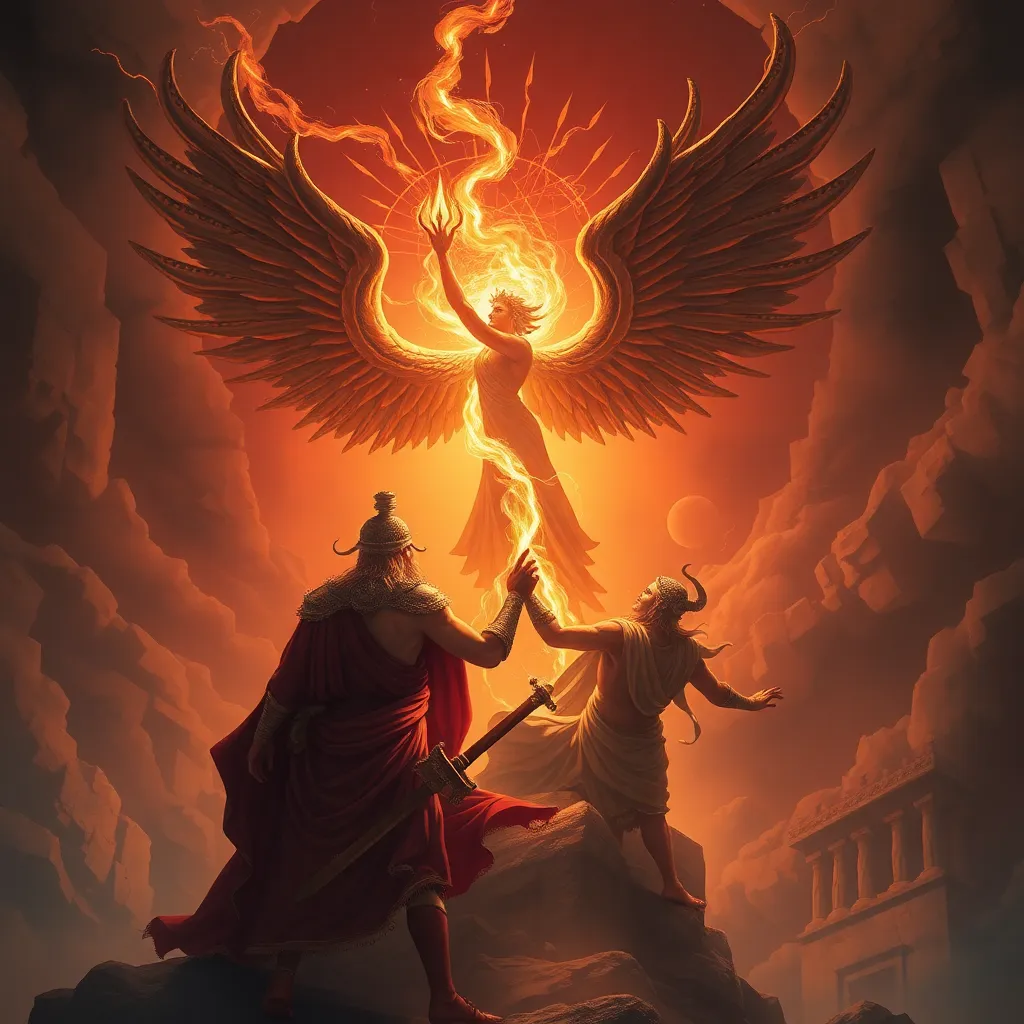The Role of Divine Retribution in The Iliad
I. Introduction
The Iliad, attributed to the ancient Greek poet Homer, is one of the most significant works in Western literature. Set against the backdrop of the Trojan War, it explores themes of heroism, honor, and the complexities of human emotions. Written in the 8th century BCE, The Iliad reflects the values and beliefs of ancient Greek culture, particularly regarding the interplay between humans and the divine.
Divine retribution in ancient Greek culture refers to the concept that the gods enforce moral order and justice through punishment or reward. This principle is deeply rooted in the belief that the gods are intimately involved in human affairs and that they respond to human actions with appropriate consequences.
This article will explore the significance of divine retribution in The Iliad, demonstrating how it shapes the narrative and reflects the moral framework of Greek mythology.
II. The Concept of Divine Retribution in Greek Mythology
In Greek mythology, divine retribution is a manifestation of the gods’ commitment to maintaining cosmic order and justice. The ancient Greeks believed that every action had consequences, and the gods played an active role in ensuring that moral codes were upheld.
Key aspects of divine retribution include:
- Divine Justice: The belief that the gods would punish wrongdoing and reward virtue.
- Moral Order: The idea that the universe operates on a system of checks and balances, where human actions are met with divine responses.
Examples of divine retribution can be found throughout Greek mythology. For instance:
- The punishment of King Lycurgus, who disrespected Dionysus, leading to his madness.
- The fate of Cassandra, cursed by Apollo to foresee the future yet never to be believed.
In these myths, the gods enforce moral standards that reflect the values of ancient Greek society.
III. The Influence of the Gods on Human Affairs
The Iliad is filled with references to the gods, who intervene in the lives of mortals, guiding and punishing them according to their whims. Major deities featured in the epic include:
- Zeus: The king of the gods, who oversees the fates of men.
- Athena: The goddess of wisdom, who assists the Greeks.
- Apollo: The god of prophecy and archery, who supports the Trojans.
Instances of divine intervention are numerous, including:
- Zeus’s decision to tip the scales in favor of the Trojans.
- Athena’s guidance to Achilles, urging him towards glory.
This raises important questions about fate and free will. While characters make choices, their fates are often influenced or predetermined by the gods, creating a complex interplay between divine will and human agency.
IV. Major Instances of Divine Retribution in The Iliad
Several pivotal moments in The Iliad illustrate the consequences of divine retribution:
A. Agamemnon’s Hubris
Agamemnon, the leader of the Greek forces, displays hubris when he takes Achilles’ war prize, Briseis. This act of disrespect leads to Achilles withdrawing from battle, demonstrating that Agamemnon’s arrogance incurs divine disapproval and ultimately results in significant loss for the Greeks.
B. Achilles’ Anger
Achilles’ wrath is a central theme in the epic. His refusal to fight due to Agamemnon’s slight brings dire consequences to the Greek forces, illustrating that personal grievances can lead to collective punishment. The gods, including Hera and Zeus, watch closely as the war unfolds, intervening based on their alliances.
C. The Punishment of Hector
Hector, the Trojan prince, faces divine retribution for his role in the war. After killing Patroclus, Achilles’ beloved friend, Hector is ultimately slain by Achilles, who is fueled by divine anger and the desire for vengeance. This cycle of retribution culminates in the downfall of Troy, showcasing the destructive power of divine justice.
V. Thematic Implications of Divine Retribution
The theme of divine retribution in The Iliad carries profound moral lessons:
- Moral Lessons: Characters learn that actions have consequences, and the gods will not tolerate hubris or injustice.
- Power Dynamics: The balance between mortals and immortals is constantly in flux, highlighting the vulnerability of human beings.
- Justice vs. Injustice: The epic portrays a world where justice is often elusive, leaving characters grappling with the whims of the gods.
VI. Character Reactions to Divine Retribution
Characters in The Iliad have varied responses to the actions of the gods:
A. Justification and Questioning
Many characters, such as Achilles and Agamemnon, grapple with their understanding of divine will. They often justify their actions based on their interpretations of the gods’ desires.
B. Psychological Impact
The psychological effects of divine retribution are evident, particularly in Achilles, whose rage leads him to question his own morality and the justice of the gods.
C. Prayer and Sacrifice
Characters frequently engage in prayer and sacrifice, seeking the favor of the gods. These rituals reflect their hope for divine intervention and protection.
VII. Comparative Analysis with Other Works
The role of divine retribution is not unique to The Iliad; it appears in various other epic narratives:
A. Similarities and Differences
In The Odyssey, divine justice plays a crucial role, but the focus shifts towards personal growth and redemption. In contrast, The Aeneid emphasizes the inevitability of fate, showcasing how divine will shapes destiny.
B. Evolution of Understanding
Over time, literature has evolved in its portrayal of divine retribution, with modern narratives often exploring themes of justice in more nuanced ways.
C. Continuing Relevance
The themes of divine retribution and moral consequence remain relevant today, influencing contemporary storytelling in literature, film, and beyond.
VIII. Conclusion
Divine retribution is a central theme in The Iliad, shaping the narrative and providing moral lessons for both characters and readers. The interplay between gods and mortals highlights complex philosophical questions about justice, fate, and human agency.
As we reflect on the significance of divine retribution in The Iliad, we recognize its enduring legacy in literature and culture, reminding us of the timeless nature of moral inquiry and the consequences of our actions.




